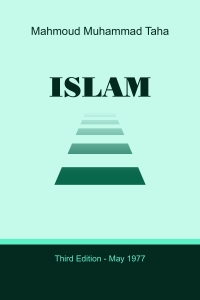Reconciling the Needs of the Individual and the Community
When discussing the emergence of human society, we noted that the earliest customs served both the individual and the community. They strengthened the individual’s will and self-control while safeguarding the community’s rights and enabling its cohesion and solidarity.
Thus, early society, within its simple boundaries, achieved a balance between the needs of the individual and the community.
From that day to this, no past or present social philosophy has achieved a lasting balance between these two needs. However, Islam, even at the highest levels of societal complexity, provides a precise and refined model of this balance.
We previously mentioned that the human individual’s ultimate need is absolute individual freedom. We now affirm that the community’s ultimate need is to become a suitable means for achieving the truly free individual. The community is a means for this individual, and anything that can enable the means to fulfill its purpose becomes a requirement for the community.
We outlined the framework of the future society earlier in this discussion. Now, we turn to focus on the individual, who is free in the truest and most absolute sense.
The Absolutely Free Individual
There is no doubt that, despite all that can be said about society and its role in aiding the individual, true freedom can only be achieved through an individual’s personal effort. While society can secure a person’s life from fear, poverty, ignorance, and disease, it cannot eliminate the psychological complexes - both inherited and acquired - that bind the individual.
These inherited complexes date back to the dawn of human life, when society first imposed duties upon individuals. They are vast in scope but diminish as society progresses and as the acquired complexes of an individual’s life lessen in response to this advancement.
These psychological complexes are the greatest obstacle to freedom, for they divide the human personality into an outward self that conforms to societal expectations and an inner self that, if exposed, would lead to alienation and discord among people.
This distressing division within the human personality requires individual effort to reconcile and integrate, in order to form a unified, and complete self. As Christ said: “A house divided against itself cannot stand.”
It has been previously stated that the Qur’an and the acts of worship transmitted from the Prophet are the means to release these complexes. Imitating the Prophet’s way of life with precision unlocks the meanings of the Qur’an. Understanding the Qur’an illuminates the dark recesses of the subconscious, where desires have been imprisoned for millions of years, far from light, warmth, and life.
As this light penetrates those recesses, the human personality emerges free, unbound, as if released from chains.
It must be understood that imitating Muhammad is not the end of the creative power within us. Rather, precise imitation of him is a means to liberation from imitation itself. Worship, as prescribed, is merely a tool for achieving individuality, our unique self that no other member of the human collective shares.
Imitation, in its highest and finest form, is ultimately a denial of individuality, and individuality cannot be realized through its denial.
Just as repression (kabt) in the early stages of human development served as a means to liberation from repression at its peak, imitation (taqlid) in the early stages of a seeker’s path serves as a means of liberation from imitation when reaching maturity.
Every seeker on the path of freedom begins with Islam, progresses to faith (iman), and ascends through the various stages of excellence (ihsan), as previously explained, until they return to Islam on a higher plane.
The Qur’an addresses the seeker individually at each stage of their journey. For instance, when the seeker reads the verse: “For whoever wills among you to take a straight path. But you do not will except as God Wills, the Lord of the worlds.” (81: 28-29)
At the beginning of their path, they understand it to mean that they have an independent will to choose straightness or deviation. Thus, they strive for straightness with diligence and determination.
When their experience matures and they reach spiritual equilibrium, they come to know with certainty that they have no independent will apart from Allah’s. At this point, the verse: “But you do not will except as God Wills, the Lord of the worlds,” applies to them with full awareness of its wisdom.
They come to see that the earlier statement, “For whoever wills among you to take a straight path,” is abrogated in their case by the latter statement, as they now understand its deeper truth.

